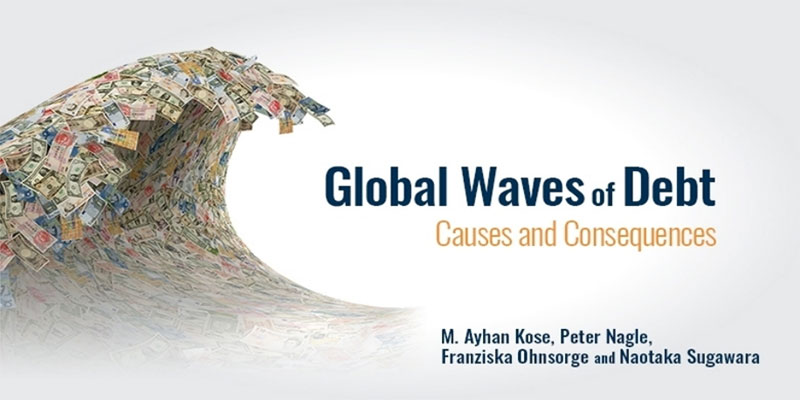There are benefits and drawbacks to a strong dollar for the United States. Some people will reap the advantages, while others will suffer the consequences. When the dollar grows in value on the forex market, it is said to be strong. If the dollar's value rises, it may purchase more foreign currency. A high dollar, for instance, is helpful for Americans going abroad but detrimental to foreign visitors to the United States. For 2019, the Invesco DB US Dollar Index Bullish Fund (UUP) gained over 4%. This exchange-traded fund mirrors an index that measures the dollar's worth concerning its exchange rate against a selection of major international currencies. These currencies include the euro, Japanese yen, British pound, Canadian dollar, Swedish krona, as well as the Swiss franc.
The Benefits Of A Strong Dollar
Travelling Abroad Is Less Expensive
US citizens travelling abroad will find that their dollars go farther thanks to the strong dollar. A strong dollar may purchase more items when converted to the local currency since local pricing in other nations is less responsive to fluctuations in the US economy. The cost of living for expatriates, or American citizens living and working outside the country, will also fall, provided they continue to hold dollars or get income in dollars.
Imports Are Cheaper
When the value of a foreign currency declines concerning the dollar, the cost of imported goods from that country decreases. European luxury vehicles like Audis, Mercedeses, BMWs, Porsches, and Ferraris would all be cheaper to purchase in dollars. At the current exchange rate of 1.35 dollars per euro, a European luxury vehicle that costs €70,000 would set you back $94,500. If the dollar were to drop to 1.12 euros, the price of the identical automobile in Europe would increase by $78,400, bringing the total cost of ownership to $78,400. The lower cost of imports is a direct result of the strengthening of the dollar. The price of other low-end substances will also drop, putting more money in the hands of ordinary Americans. Generally, the overall manufacturing cost is reduced when a country imports raw materials, leading to higher profit margins for US businesses.
Benefits Of International Business In The United States

Foreign firms with significant US operations and their investors stand to gain. Profits earned in dollars by multinational firms with effective US sales will increase as the value of the dollar rises. Equally deserving of the compensation would be the firms' investors.
Status As The Global Reserve Currency Is Strengthened
A strong dollar strengthens the dollar's position as the world's reserve currency. The role of the US dollar as the de facto international reserve currency has been called into doubt by many nations in recent years, including Russia, Iran, as well as China. However, a strong dollar helps maintain its demand as a reserve. A strong dollar has numerous positive effects on the United States, but it may harm local firms that do significant business abroad and their investors.
The Drawbacks Of A Strong Dollar
Visits To The United States Now Cost More Than Ever.
A higher dollar means that tourists will have to pay more when they shop in the United States. The cost of living for business visitors and foreign nationals residing in the United States who have foreign-denominated bank accounts or are paid in their native currency will rise.
Exporters Suffer
Domestically produced items become comparatively more costly overseas, just as imports get cheaper at home. If the dollar were worth 1.35 euros, a $30,000 American-made automobile would cost €22,222 in Europe. If the dollar were worth 1.12 euros, the price would rise to €26,786. Expensive exports, some claim, might be wrong for the American economy because they discourage domestic manufacturing.
Us Companies Doing Business Abroad Suffer
U.S.-based corporations with extensive international operations will be hit hard by the depreciation of their global sales revenue. Investors in these kinds of firms are also likely to feel the effects. Companies like McDonald's Corp. (MCD) and Philip Morris International Inc. (PM) are household names in the US, yet they do the vast majority of their business abroad. Some of these businesses employ derivatives to protect themselves against foreign exchange fluctuations, while others don't, and even those that do may only do so partially.
The Impact On Emerging Market Economies Is Negative

There will be a price premium for foreign governments needing US currency reserves. This is of paramount significance in economies that are still developing.
Special Considerations
Since the increased demand for inexpensive imported products should drive up costs, economic theory predicts regular currency swings would ultimately return to a mean. Similarly, if global demand for high-priced exports decreases, local producers will have to lower their prices to maintain a steady exchange rate.
Conclusion
Despite the Bush administration's support for a "strong dollar," the currency has fallen in value. Both the Clinton as well as Bush administrations' adoption of a "strong dollar strategy" was disastrous for the American economy, contributing to a sharp decline in manufacturing employment and the buildup of record-breaking trade deficits. A more significant decrease in the dollar value should be encouraged rather than the current approach of supporting an inflated currency. Over the long run, the United States exchange rate strategy should work to reduce the size of the trade imbalance.




